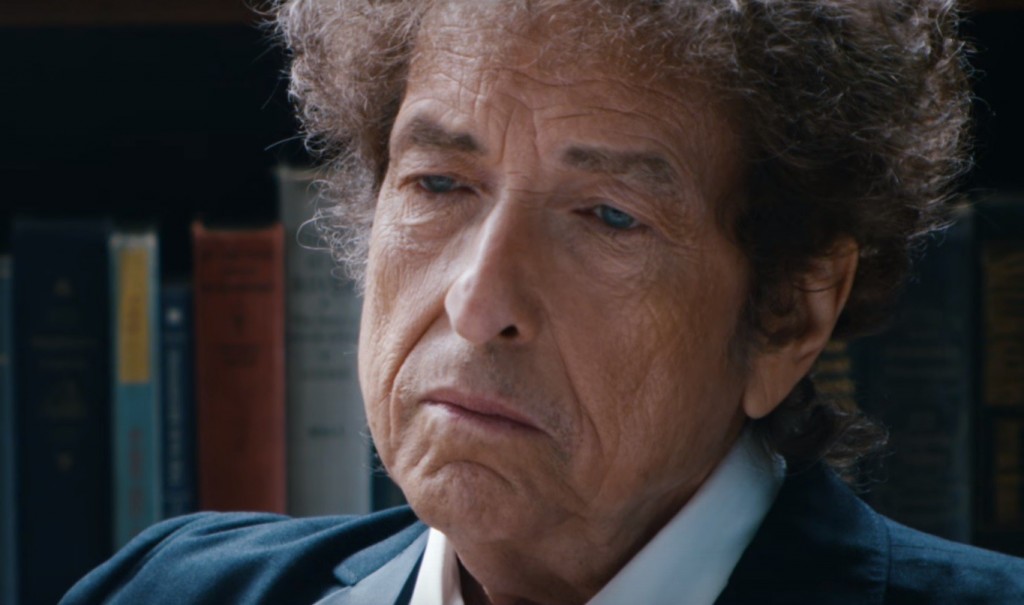It is apparent that Bob Dylan’s material is quite often not even remotely stunning, and on quite a number of occasions one could describe a given song as more confusing and insane than genius. He could well be, along with the likes of Eminem, one of the most divisive writers in modern history (putting aside writers of prominent political treatises or religious texts). Indeed, given the way that their level of quality, and their meaning are strongly disputed among critics and the general population, one might think that Dylan’s lyrics were religious documents – indeed, in some cases, they were literally so, in a way. The body of the work of the poet with a guitar probably had a greater effect on affairs current and past than many political works do.
Dylan’s contribution to poetry and song-writing is excellent overall. If he had written just two of his classics, ‘Like a Rolling Stone’ and ‘The Times They Are A-Changing’, his reputation would arguably still be good enough to earn such an accolade as the Nobel. However, let us not stop there. From ‘Blowing in the Wind’, ‘Knockin’ on Heaven’s Door’, and ‘Simple Twist of Fate’ to lesser-known compositions like ‘John Brown’, ‘Positively 4th Street’ and ‘Not Dark Yet’, the list of brilliant lyrics penned by Dylan seems almost endless. Furthermore, it is probable that the number of songs featuring at least some notable poetic quality that are written by Dylan is at least virtually the same as the amount of mediocre or poor writings he has produced. That is quite an achievement given how much he has written over the years.
Some, though, are not satisfied by these accomplishments as criteria for a deserving recipient of a Nobel Prize. The Telegraph described Dylan as a “dim star”, which sounds arguably harsher when out of context than the writer Tim Stanley may have intended it to be, given that in context he was comparing Dylan to the “suns around which we orbit” such as Yeats and Solzhenitsyn. However, that comment is still a pretty outrageous overlooking of Dylan’s immense qualities. These are seen in his almost unrivalled skill as a writer in various styles, from comedic narratives to gritty protest to surrealism and beyond. Who else do you know of who can master such a wide stylistic range, in addition to such a great number of themes, in their preferred form?
Is Dylan really found lacking in terms of his output’s “scale” or “thematic density”? He may or may not possess as deep an understanding, or as detailed a coverage of themes in comparison to Stanley’s “suns around which we orbit”. However, these deficiencies are compensated for, if they do exist, by the great punchiness of some of Dylan’s lines or songs and their consequently memorable character. If ‘Masters of War’ made its point through a tome of five hundred pages, it would not be the same. Moreover, Dylan can be very profound. Sometimes he is as powerful and thought-provoking during his longer or more complex lyrics as he is at other times when he is briefer and simpler.
Dylan’s significance over the years, or the “scale” of his “output” as Stanley might put it, is great to say the least. This is evident in his impact not just on folk music but on rock and pop culture at large. Given the catalyst-like reference point that he was or still is for countless other important artists and movements, his rating on the seismometer is rather huge in terms of historical influence. That is not to mention such facts as the prevalence of singer-songwriters in British music through the years and even recently, and the major historical hits that were written by Dylan by artists as diverse as Jimi Hendrix and Adele. These are clearly notable things that provide a foundation for his place in the pantheon, even if other writers did indeed “outstrip… Dylan by light years” in terms of “the scale of their output and the thematic density of their texts”, as Stanley claims.
The astounding achievements documented here which, at least in part, earned Dylan his acclaim is something far more important than, for example, Barack Obama’s supposed great work in peacekeeping prior to his reception of the Nobel Peace Prize in 2009. Therefore, Dylan is clearly a titan of literature, whether the establishment recognises this truth or not, but it is about time that things change and the Nobel Prize broadens its scope. This is not as massive a change as some are making it out to be, because it represents a heightening of standards, rather than a lowering of them, as Stanley suggests. Dylan is definitely worthy of his Nobel Prize for Literature, whatever his critics may say.
Some of the coverage you find on Cultured Vultures contains affiliate links, which provide us with small commissions based on purchases made from visiting our site.

